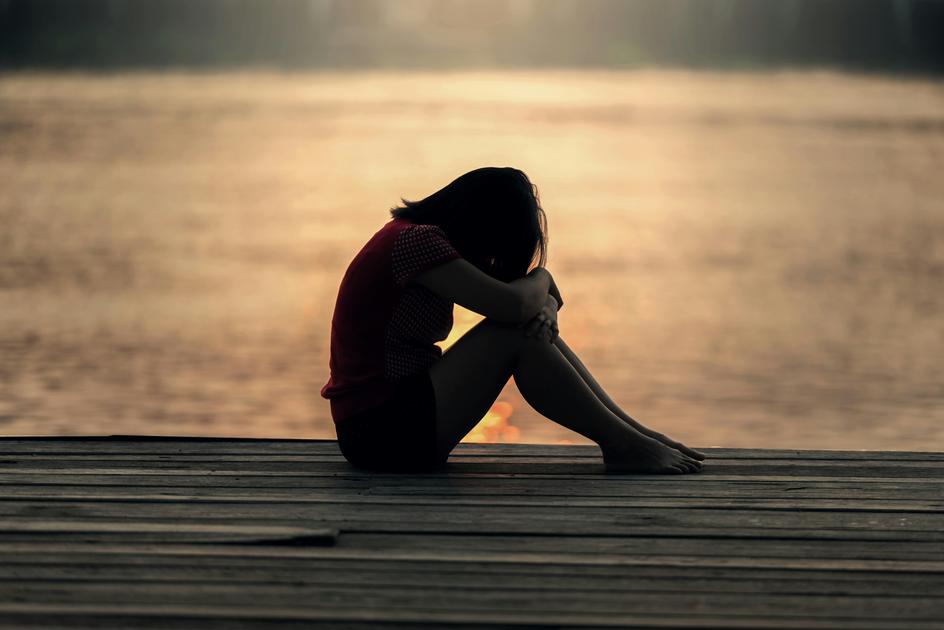Experiencing hair loss after pregnancy can be emotionally distressing, especially when combined with stress. Many women face this silent struggle, feeling overwhelmed by hormonal changes and daily pressures. Understanding how stress magnifies this issue is the first step towards reclaiming your confidence and well-being. In this article, we’ll explore the connection between postpartum hair loss and stress, and share gentle strategies to help you cope.
The Calm Reset — 7 Days to Feel Steady, Kind & In Control Again - Only $2.99
Gentle guidance trusted by our community.
Understanding Postpartum Hair Loss
Postpartum hair loss is a common experience for many women after giving birth. During pregnancy, elevated hormone levels often lead to thicker and healthier hair. However, after childbirth, there is a significant drop in these hormones, which can push a large number of hair follicles into a shedding phase. This process is known as telogen effluvium and can lead to noticeable hair thinning, especially around the scalp. It’s important to understand that this condition is usually temporary, and most women see their hair return to its normal state within a year.
The Role of Stress in Hair Loss
Stress can play a significant role in exacerbating postpartum hair loss. When new mothers face high levels of stress—whether from adjusting to motherhood, lack of sleep, or anxiety—this can lead to increased shedding. Stress triggers the body to produce higher levels of cortisol, a hormone that, when elevated, can impair hair growth and lead to greater hair loss.
To manage this stress effectively, it is essential for mothers to prioritize self-care and reach out for help when needed. Stress management techniques can not only help with hair loss but can also improve overall well-being.
Hormonal Changes After Pregnancy
Understanding the hormonal shifts that occur after pregnancy is crucial. Right after delivery, estrogen and progesterone levels plummet, while androgens may rise, contributing to hair loss. These hormonal changes can also affect mood, sleep, and metabolism, creating a whirlwind of physical and emotional challenges. Recognizing that these changes are temporary can help new moms cope with the changes in their bodies, including hair loss.
Coping with Stress and Anxiety
Finding effective ways to cope with stress and anxiety can significantly improve both mental health and physical symptoms like hair loss. Here are some strategies to consider:
- Practice Mindfulness: Engaging in mindfulness activities such as meditation, yoga, or deep breathing exercises can help reduce stress levels.
- Connect with Others: Talking to friends, family, or support groups can relieve feelings of isolation and provide emotional support.
- Exercise Regularly: Physical activity is a powerful stress buster that releases endorphins, improving mood and overall health.
Many women have found that integrating these practices into their daily routines helps them feel more grounded and in control.
Gentle Hair Care Tips for New Moms
Taking care of your hair during this delicate time requires a gentle approach. Here are a few tips to consider:
- Choose the Right Products: Look for gentle, sulfate-free shampoos and conditioners that nourish rather than damage.
- Avoid Heat Styling: Give your hair a break from heat styling tools to reduce further damage.
- Regular Trims: Keeping your hair trimmed can prevent split ends and make it look healthier.
- Be Gentle When Brushing: Use a wide-tooth comb and avoid tugging at tangles to minimize hair breakage.
With care, you can protect your hair and encourage it to grow stronger.
Nutritional Support for Hair Health
A well-balanced diet plays a crucial role in maintaining hair health. Focus on consuming foods rich in vitamins and minerals that support hair growth:
- Protein: Include lean meats, fish, eggs, and legumes.
- Omega-3 Fatty Acids: Incorporate fatty fish, walnuts, and flaxseeds.
- Vitamins: Ensure you’re getting enough vitamins A, C, D, E, and the B vitamins.
- Iron and Zinc: These minerals are essential for hair growth; consider sources like spinach, legumes, nuts, and seeds.
Eating a nutritious diet not only supports hair health but also promotes overall well-being. If you’re looking for an effective way to supplement your nutritional intake, see here how many women are solving this without heavy medications.
The Importance of Self-Care
Self-care is not just a luxury; it’s a necessity, especially for new mothers. Taking time for yourself can help rejuvenate your spirit and reduce the stress that leads to hair loss. Consider dedicating a few moments each day to activities that bring you joy and relaxation, such as:
- Reading a Book: Immerse yourself in a good story.
- Taking a Bath: Warm baths can soothe achy muscles and calm the mind.
- Engaging in Hobbies: Spend time doing activities you love, whether that’s painting, gardening, or crafting.
Remember, taking care of yourself enables you to be the best version of yourself for your baby.
Connecting with Other Moms
Building a network of support is invaluable as a new mom. Connecting with other mothers can help you share experiences, advice, and coping strategies. Consider joining local parenting groups, online forums, or even social media communities. These connections can validate your feelings and provide encouragement during challenging times.
Treatment Options to Consider
If hair loss persists and is concerning, it may be beneficial to consult a healthcare professional. Treatment options may include:
- Topical Treatments: Products like minoxidil can promote hair growth.
- Nut Supplements: Supplements specifically designed for hair health may be recommended.
- Therapy: If stress or anxiety is significant, therapy can provide valuable support.
Always consult with a healthcare provider before starting any treatments to ensure they are safe for you.
Embracing Your Journey to Recovery
Your journey through postpartum hair loss and stress can be an emotional rollercoaster, but it can also be a time of empowerment and growth. Embrace the process and remind yourself that this phase is just a part of your journey. Many women have successfully navigated these challenges and come out stronger on the other side. Focus on small, manageable steps and celebrate your progress along the way. You are not alone, and it is possible to improve these symptoms and challenges by following a simple path, just like many others have done.
For more insights and support, don’t hesitate to explore your options. You deserve to feel your best! SEE MORE
The Calm Reset — 7 Days to Feel Steady, Kind & In Control Again - Only $2.99
Gentle guidance trusted by our community.







